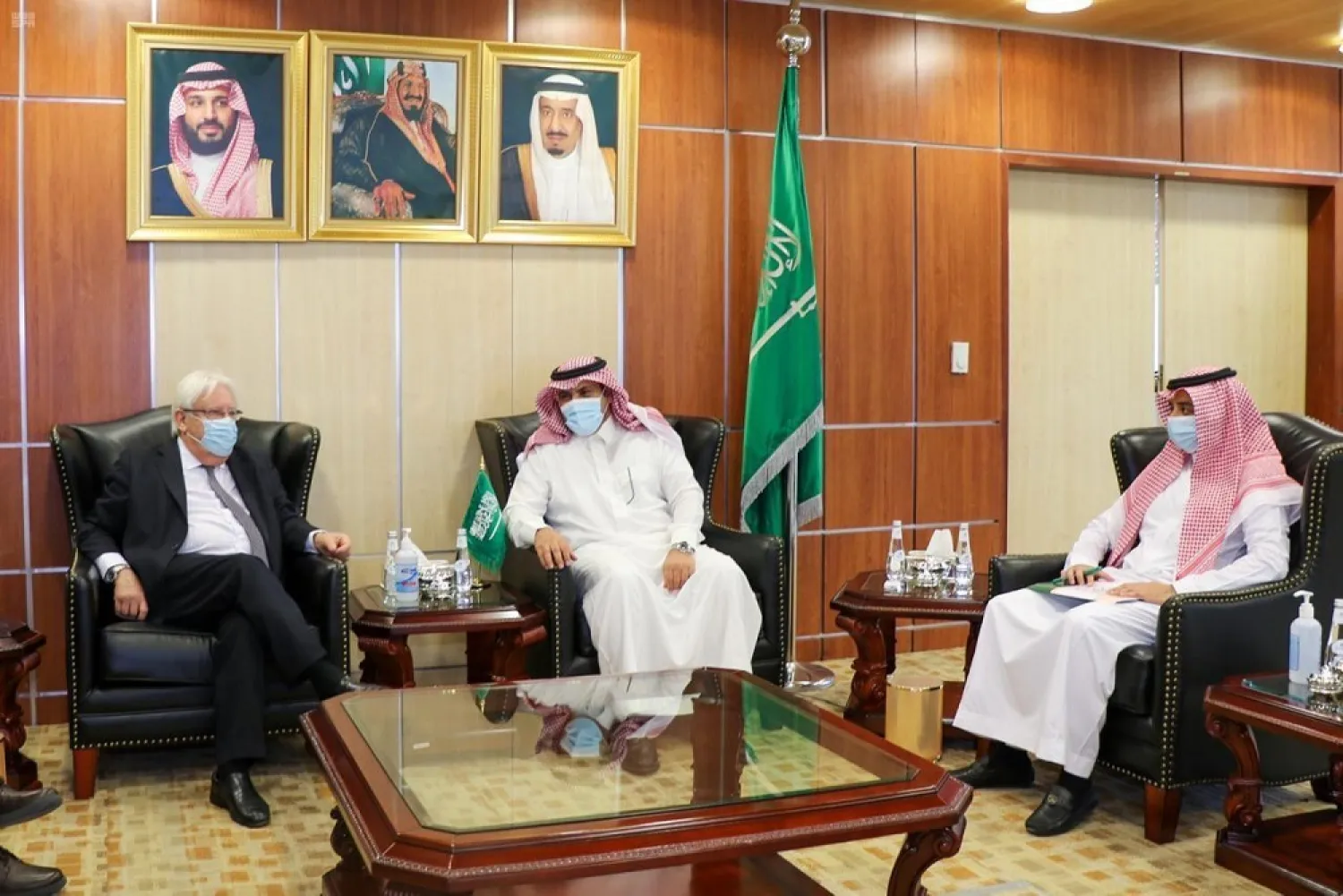Saudi Arabia has intensified its diplomatic efforts with other Arab states to push for a solution that ends the suffering inflicted by Iran-backed Houthis on the Yemeni people. The scale up follows United Nations envoy to Yemen Martin Griffiths concluding his visit to Riyadh.
Griffiths was in the Saudi capital to meet with officials from Yemen’s legitimate government to receive their approval on his final draft to the “joint declaration.”
The envoy said he held constructive meetings with Yemeni Foreign Minister Mohammed al-Hadhrami and parliament Speaker Sultan al-Burkani. The officials discussed the latest updates to the draft joint declaration.
Discussions also focused on the dire humanitarian consequences of the military escalation in and around Marib, which Griffiths said continues to be safe haven for hundreds of thousands of internally displaced Yemenis.
The envoy also renewed his emphasis that the attack on Marib must immediately cease
Griffiths also met with Saudi Deputy Defense Minister Prince Khalid bin Salman and Saudi Ambassador to Yemen Mohammed Al Jaber, who confirmed Riyadh’s support to the envoy’s efforts to reach a comprehensive political settlement in the war-torn country.
The envoy welcomed progress in the implementation of the Riyadh Agreement and discussed ways to move towards a comprehensive political solution in Yemen.
In other news, Jordan denounced the Houthis' continued attempts to target civilians in Saudi Arabia, stressing full support for the Kingdom’s efforts towards defending its security and stability.
Foreign Ministry spokesperson Daifallah Fayez also condemned the militias’ continued launching of ballistic missiles and drones targeting the Yemeni city of Marib.
The spokesperson also emphasized the need to reach an immediate and permanent ceasefire, pointing out that the Houthis must comply with all UN efforts aimed at reaching a political solution to end the crisis, restore Yemen's security and stability and meet the Yemeni people’s aspirations.









